This review is for the 2013 Electron Wheel distributed by Currie Technologies. For a time, units were being recalled due to a faulty quick release skewer which has been updated and replaced on all subsequent models. You can read about the updated 2016 Electron wheel here which has an improved pedal sensor, is available in three wheel sizes, costs less and is compatible with a wireless app.
The Electron Wheel was developed by Belon Engineering and is distributed by Currie Technologies (makers of eZip, IZIP, eFlow and now Haibike). It’s one of several wheel-based ebike conversion kits out there including the Copenhagen Wheel by Superpedestrian and the FlyKly Smart Wheel by FlyKly. What sets the Electron Wheel apart is that it’s currently available for purchase vs. pre-order, is a bit simpler to interface with and it’s also more expensive. All of these ebike wheel kits contain the battery, control system and motor but some offer smart phone interfaces and other features. The Electron wheel focuses on simplicity with no LCD screens or or wires or fancy interfaces besides the on/off switches on the wheel and pedal sensor. It does have a simple LED battery indicator however and inside there’s a gyroscope that adds more power when ascending hills.
Despite its simplistic human interface, the Electron Wheel runs some pretty sophisticated processes to judge when to add power. An accelerometer rotates with the wheel measuring gravity value and orientation (compared with the reference pointe stored in memory). As the orientation of gravity changes, the algorithm calculates road slope and throttles power accordingly. Also, it runs an algorithm that modifies the motor power based on the wheel velocity to compensate for wind drage forces! Pretty neat stuff. In layman’s terms this just means it knows when you’re climbing a hill or riding into the wind and it compensates with more power to smooth out the ride.
Speaking of power, the Electron Wheel uses a 250 watt geared brushed motor. That’s not the most impressive spec and the bike is only designed to go 18 miles per hour but it does so very smoothly and offers noticeable torque. Being brushed, the motor is a bit simpler than a brushless design and doesn’t coast quite as efficiently. When pedaling with the wheel in off mode you can still hear the gears whirring inside and feel some resistance as a result. This could be a frustrating experience if you ran out of juice on the way home and considering the location of the battery indicator (on the wheel itself) and that tendency to accidentally leave the wheel and pedal sensor turned on (because both have on/off switches) this might happen more frequently than you’d like.
The battery pack in the Electron Wheel offers 24 volts of power and 10 amp hours of capacity. That’s another low-end spec but it works well enough for around town and allows the battery to fit inside the wheel and balance the weight out. Lithium-ion technology is relatively light compared to other battery chemistry like Lead-acid and delivers more charge cycles before wearing out. It’s a solid design with two years of warranty, just not as much power or range as a larger pack. The instructions suggest keeping the battery topped off and storing it in a cool and dry environment. The quick release system makes this easy enough and also allows you to bring the wheel into your destination (when commuting to work for example).
This kit really shines in terms of simplicity but you have to double check that it will work with your bike. Make sure you’ve got 26″ wheels and make sure you don’t have disc brakes. I’ve heard they may offer different sizes in the future and that would be great since many city style bikes come with 700c 29″ wheels. Also, check that there is enough clearance between your left crank arm and the rear chain stay because the bike that I used in my testing didn’t have enough space there and the sensor hit the frame with each pedal rotation. I had to flip the sensor around and mount it on the right crank (where the front chainring is) for it to work but then it got in the way of my feet. Not ideal. The picture below shows how the sensor would hit the chainstay because there wasn’t enough room:
I enjoyed cruising around with the Electron Wheel but it wasn’t perfect. It’s quiet enough but also doesn’t go super fast. It’s relatively light weight to carry on its own but the weight is noticeable when steering the bike or trying to lift with the wheel mounted. The sensor pack is almost effortless to use but isn’t super responsive and can get in the way or completely not work if you don’t have the space for it like in my case. The slogan for the product is “meet the new reality in electric bike conversion” and indeed, it’s simple to install and almost thoughtless to operate. Still, the aesthetics are imperfect as it only comes in black right now and has a large metal leveling device sticking out on the side. It could use some polishing and I expect that will happen over time.
No electric bike conversion kit is perfect because every bike is different and there are optimization misses between the different designes. Other products that come to mind are the RideKick Trailer and Hill Topper, each with their own pro’s and con’s. There’s a lot of interest in electric bike wheels right now and from an efficiency standpoint they are awesome because they don’t require the creation, shipment and support of an entirely new bike, they let you recycle the one you already own and in that sense the Electron Wheel is pretty awesome.
Pros:
- Easy to install or swap between bikes (as long as they both use 26″ wheels and don’t have disc brakes)
- Wheel can be charged on or off the bike and uses a quick release, pedal sensor can also be charged off the bike
- Includes two pass-through points on the wheel to make it easier to lock and carry
- Includes a built in level to help with optimal mounting (though it does stick out a bit once the wheel is on)
- Awesome warranty with two years on the battery pack and one year on the motor and other components
- Being distributed by Currie which has relationships with dealers all across the US and has a long history of making and selling ebikes
- Much easier to change flats and service this kit than rear-mounted wheel kits
- Uses wireless sensors so there are no extra cables to deal with which makes it look a lot nicer
Cons:
- Only available in 26″ wheel design (standard on most mountain bikes and cruisers) so if you have a city bike with 700c wheels this won’t work
- Not compatible with disc brakes, have to use rim style like v-brakes or cantilever brakes
- Uses a brushed motor vs. brushless which requires more maintenance, has more of a fixed speed and torque, poor heat dissipation and louder operating noise
- No LCD computer or smart phone interface to show your speed, distance or battery capacity
- Only available in one color, black, but looks good overall
- May catch more crosswinds and become less stable than standard bicycle wheel or deep dish rims
- Adds weight and inertia to systems with front shocks, changes rebound characteristics
- Pedal sensor pack may not work if there isn’t enough room between your crank arm and the chainstay
Resources:
- Official Site: http://www.currietech.com/
- More Pictures: https://goo.gl/photos/wBaRUhXwJ9rR2FHF8

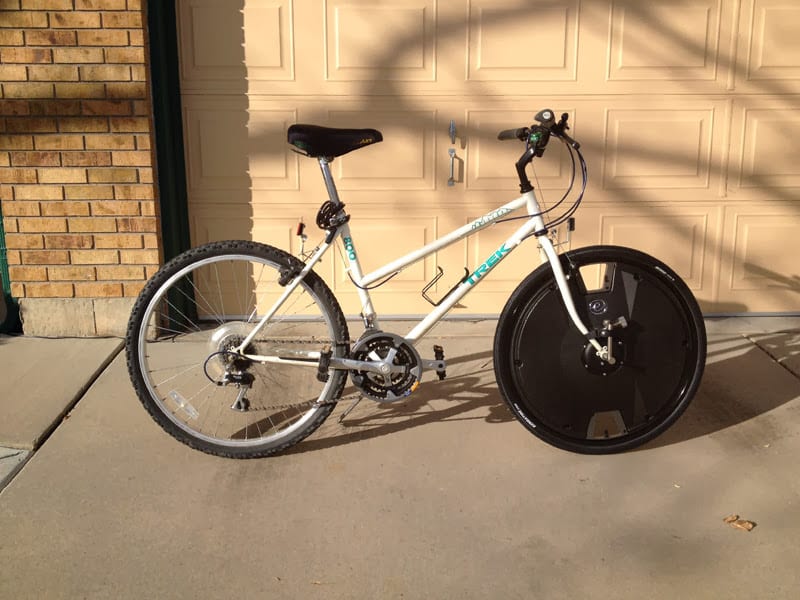
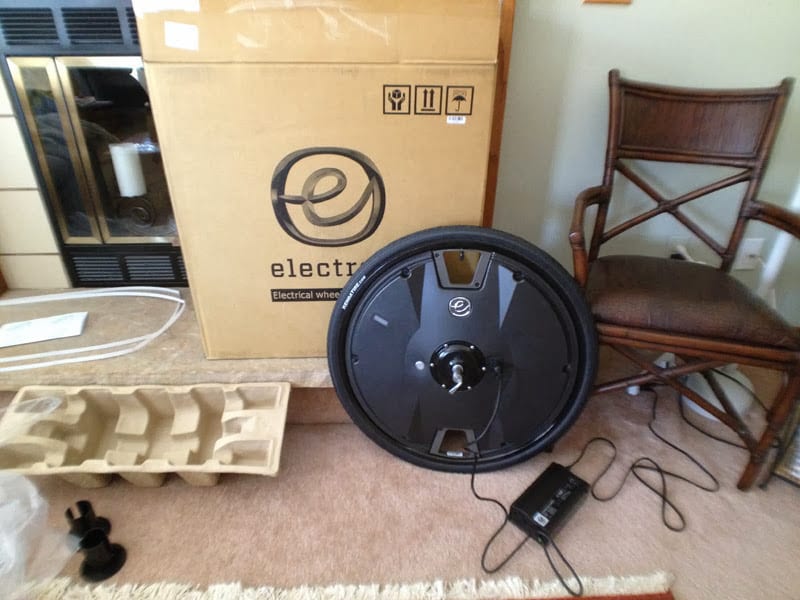
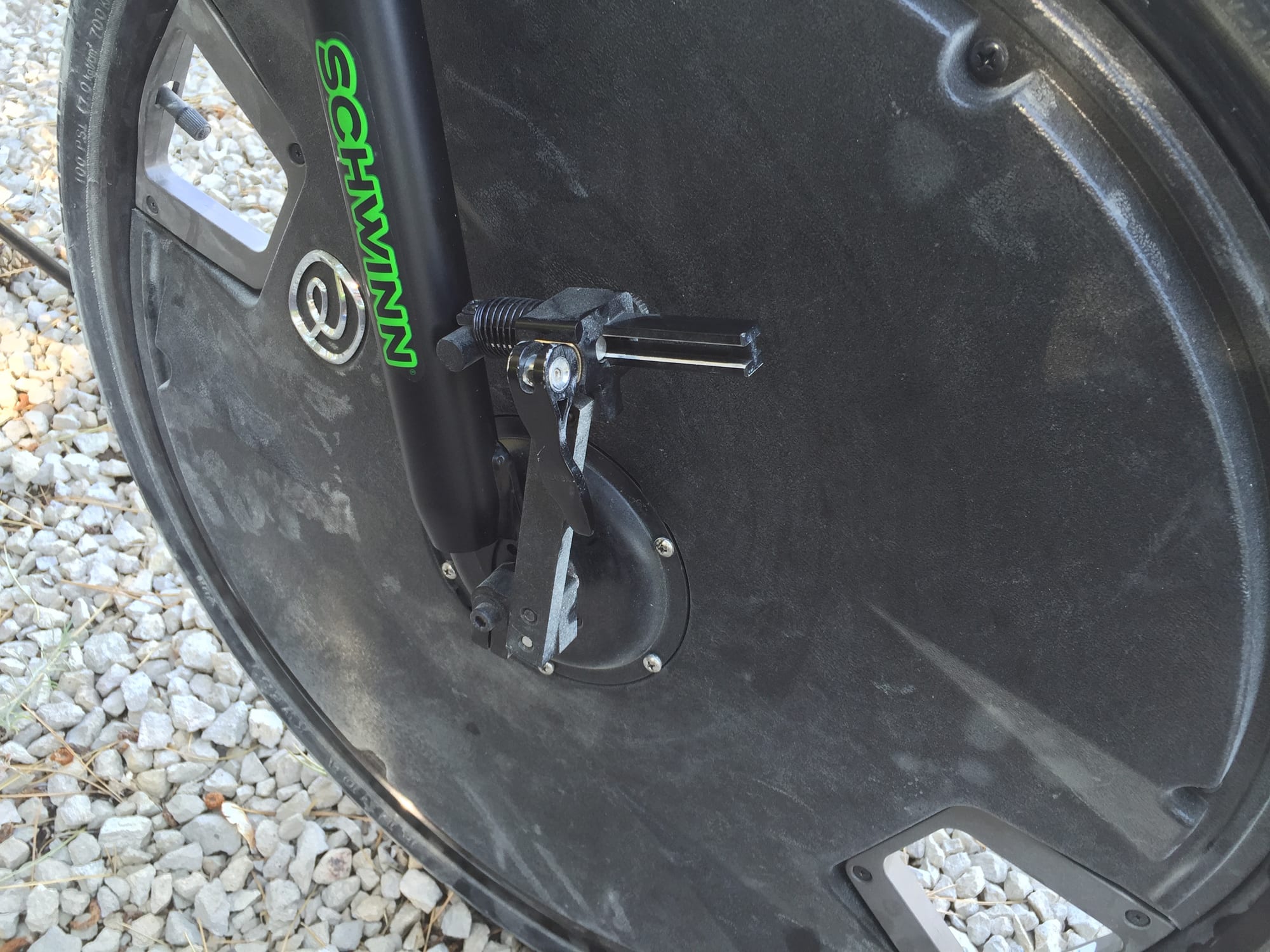
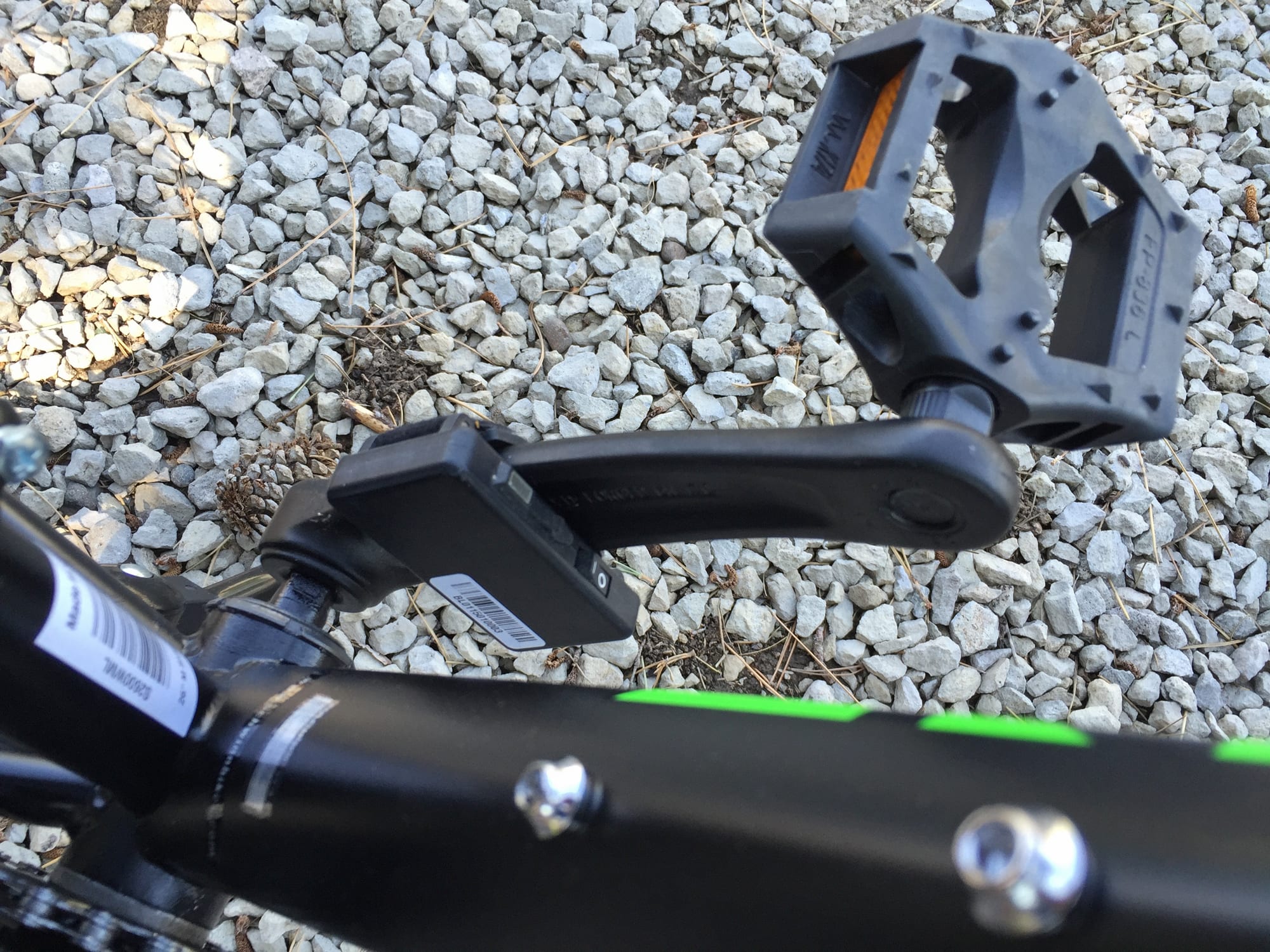

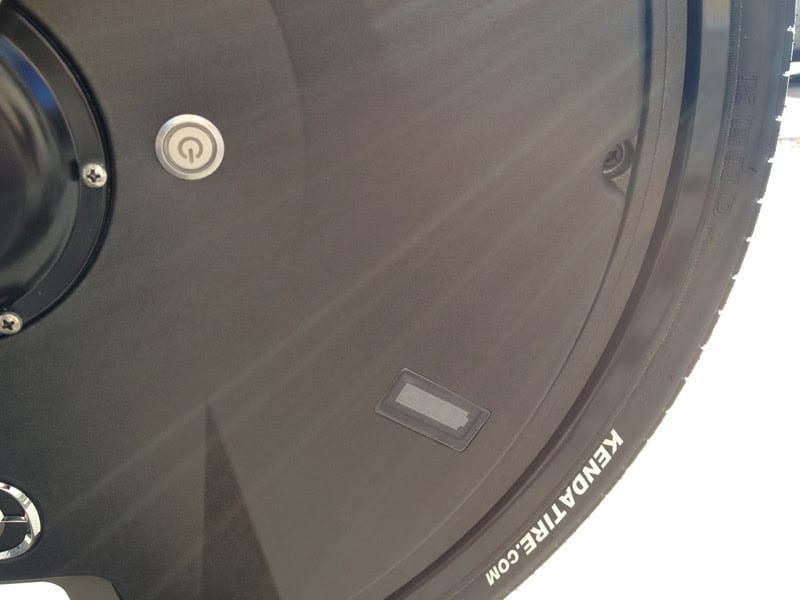
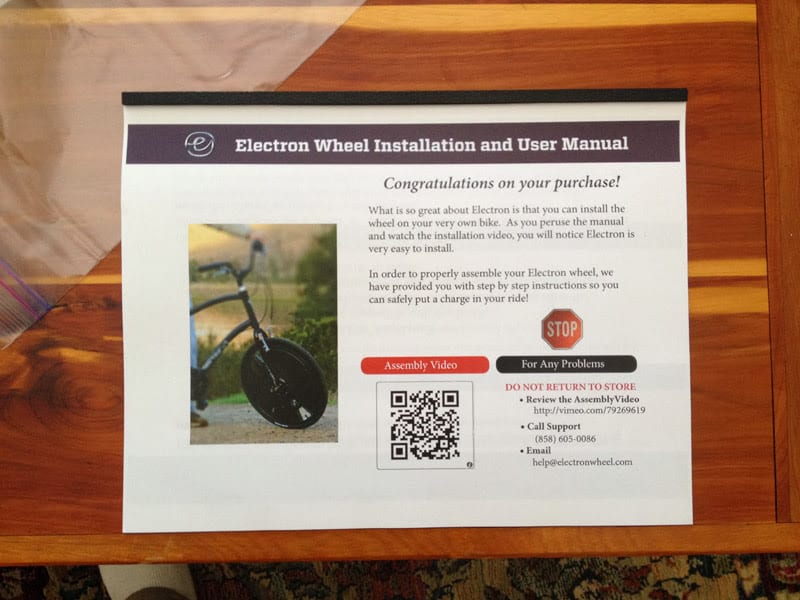
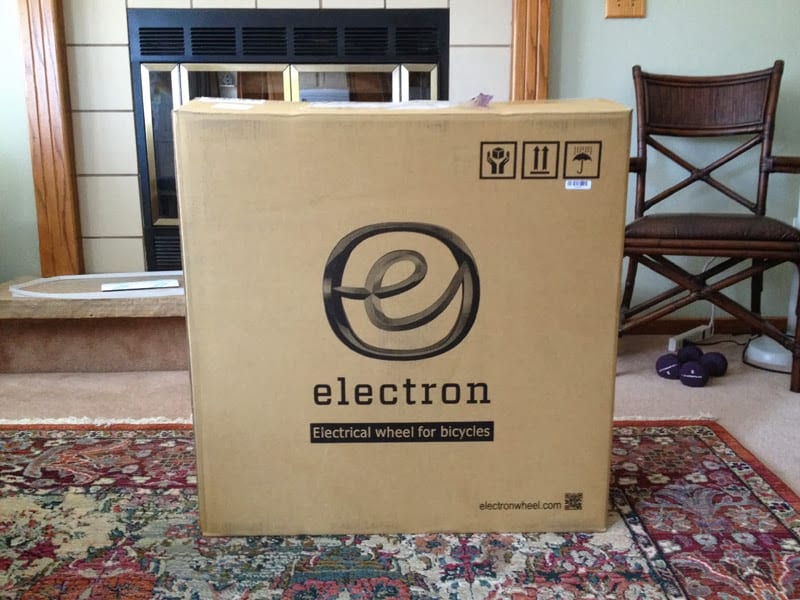
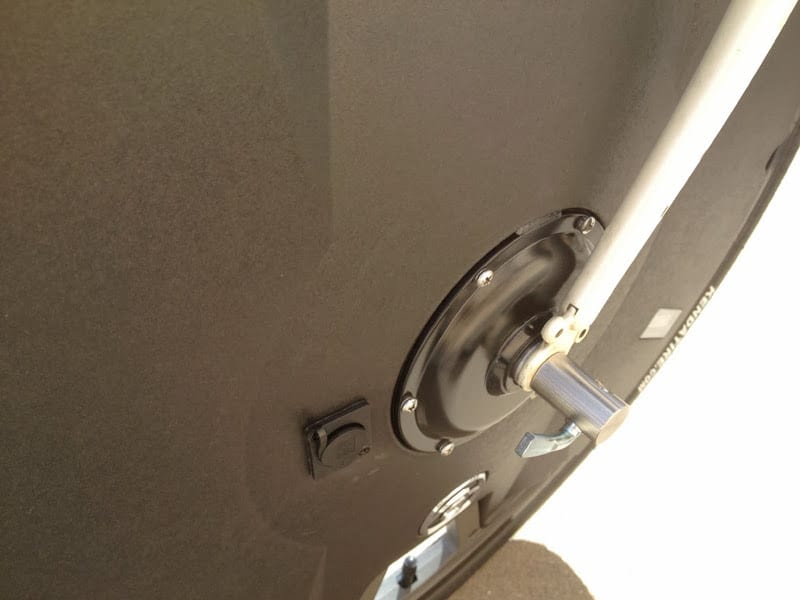



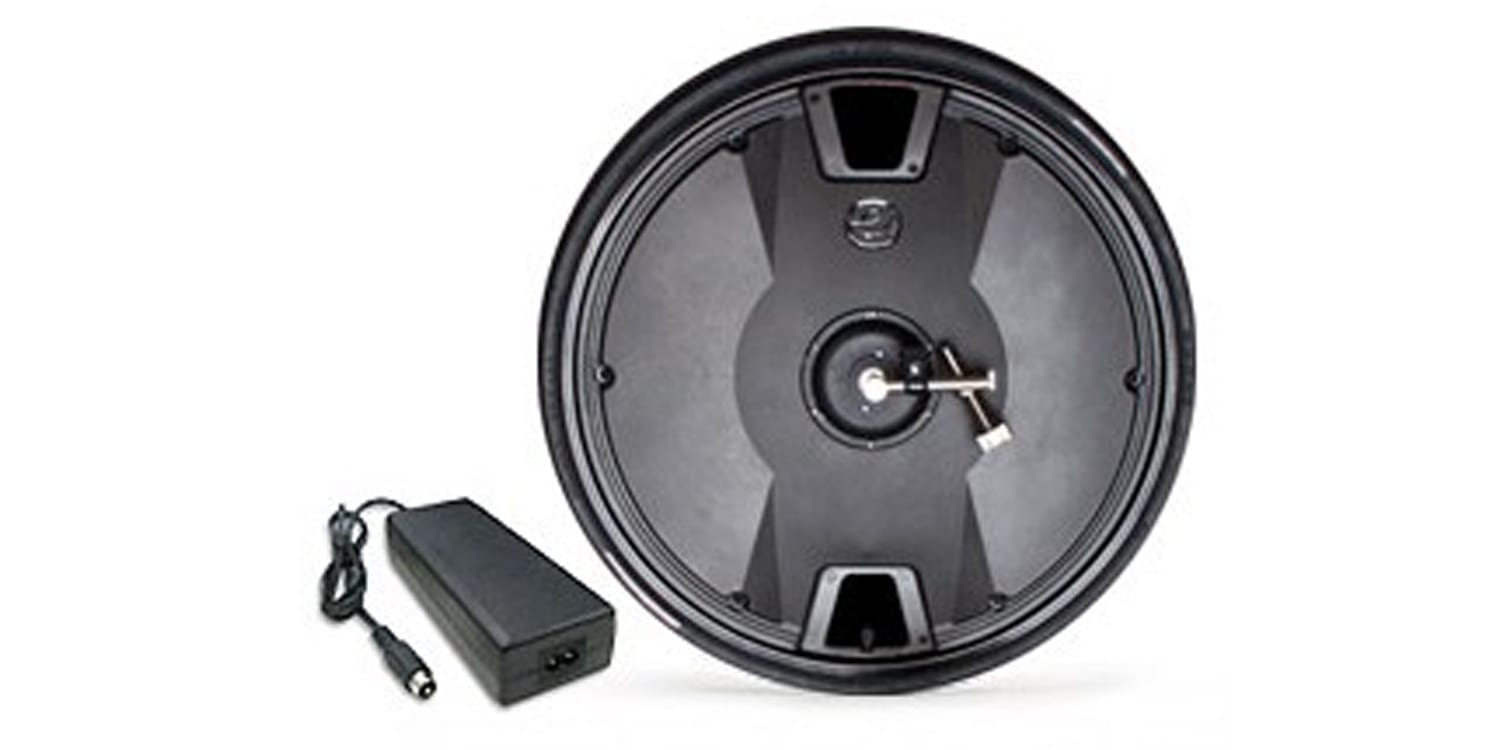
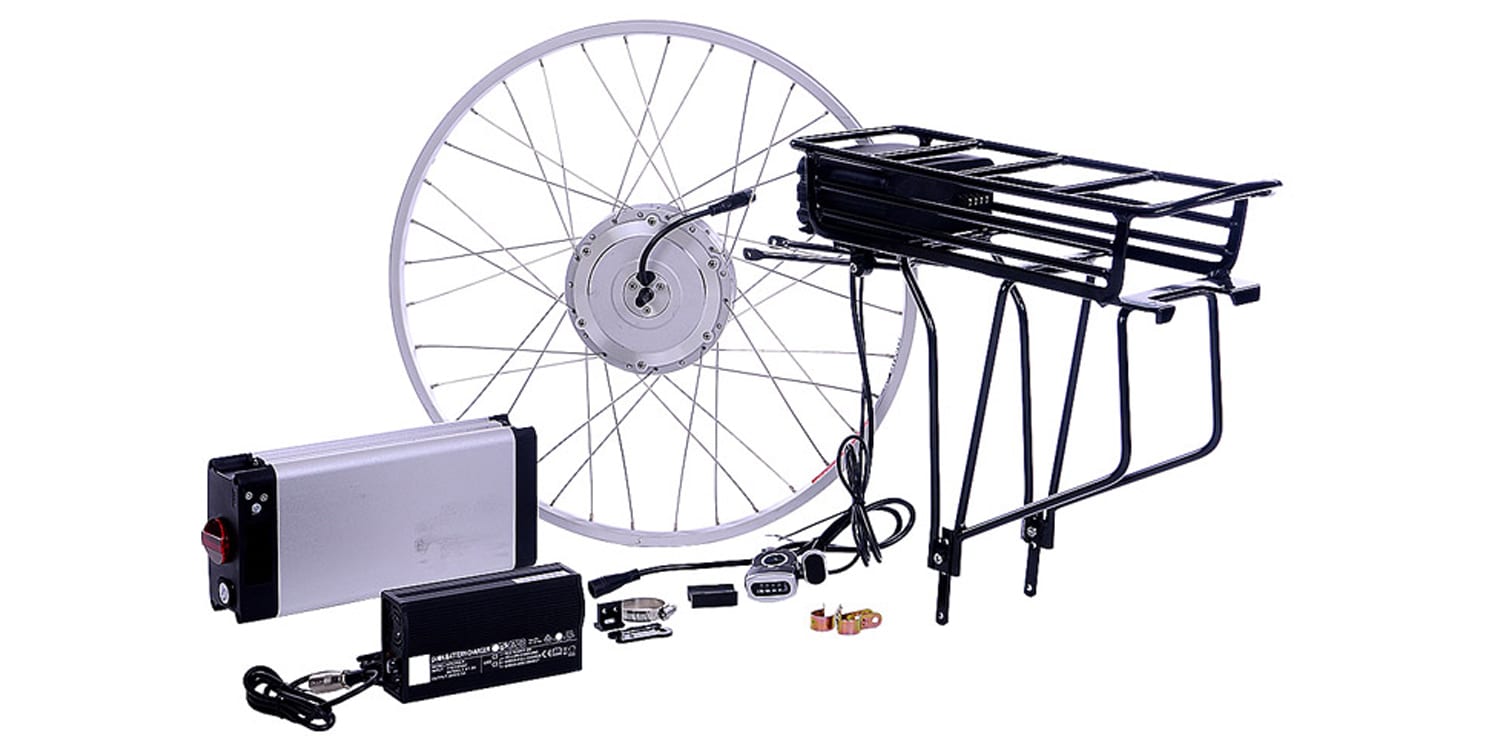

Jason says
Thanks for the review, it answered a ton of the questions I had regarding this type of new smart wheel. Can’t wait to get your feedback on the FlyKly and Copenhagen offerings coming out very soon. Your opinion will be a key deciding factor for sure. Keep up the good unbiased reviews.
Larry Pizzi says
Thanks for reviewing the Electron Wheel. A few comments regarding some of the points you raise;
1) Pedal sensor placement and clearance to chain stay. While we have tested this on hundreds of bikes and had no problem, the Trek that you mounted it on was likely more then 25 years old based on looking at the images. We find that most bikes have no problem with this clearance. That said, Belon Engineering is working on making modifications for our Gen2 product that will insure proper fit even with limited clearance.
2) You mention no variable speed but actually the speed of the motor beyond start-up, accelerates to its top assist speed based on haw fast you choose to ride based on your human pedal input.
3) You note that its only available in 26″. While correct today, a 700C version will become available in March of 2014.
4) You note that it only works with rim brakes – This also will be modified for Gen2 product that will be released later in 2014.
5) Current motor, motor power, voltage and motor type will be upgraded to a lighter brushless version on Gen2 product, along with many other new features which I’m sure you will like.
6) Weight: At just under 20 lbs, yes, its much heaver then a standard wheel but we find riders very quickly adapt to the feel and are very comfortable with the handling. Also, the reason for the weight is we have packed in a 10Ah lithium ion battery pack, What we have seen form competitors videos of their prototypes, their packs have much less capacity but we will reserve judgement until which time we see what they actually deliver, once they begin shipping their product next year.
I hope this helps. Any questions, please feel free to email me at [email protected].
Thanks and Happy Holidays!
Larry
Court Rye says
Hey, thanks Jason! I do my best. Each bike has pros and cons and the experience is usually focused on one type of riding or another. This was the true-to-life experience I had with the kit using it for my Mom and even though it didn’t go perfectly, I enjoyed the product and am excited that Larry chimed in to share updates about the next version :)
Jason says
Hello
I like your videos and reviews.
I was wondering if you could do a review on the Fly Kly and Copenhagen Wheel.
I also would like your take on this new concept of electric wheels is this better then the standard batterie and wires type electric kits
Cause I was considering to go with the Leeds 5 minute or Clean Hill Topper electric bike kits I spoke to you about these kits and you were really helpful.
But I really like this concept of a clean looking bike with out the wires and the batterie.
But I want to know is this a good solution that will work just the same or better like the kits I mentioned or a already purpose built e-bike.
Is it better just to go with the electric kits I mentioned.
I just overall want a kit that is easy to assembly on and off and can go decent speed and get me up hills with less or no effort at all.
I don’t want to be sweating and out of breath before I get to my destination.
I just want to dress for the occasion (Work) not the ride.
I like the clean no wires look that is what is drawing me to these new electric wheel concepts.
Well I would like your take on this and your advice on what you think is a good choice.
Keep up the great work.
Have a great day.
Court Rye says
Hi Jason, I agree that fewer wires looks nice and having a kit that’s easy to put on or take off is great in case you want to switch to regular cycling. The Electron Wheel worked alright but added more weight to the front wheel than one of the other kits you mentioned (Clean Republic or LEED) and this can change the ride a little bit. I’m traveling right now with the hope of test riding the FlyKly and Copenhagen Wheel, keep an eye out for those and hopefully the reviews will help you decided. In terms of price and balance, the Hill Topper and 30K from LEED work pretty well.
Sam says
Is Electron Wheel better than the Evelo Omni Wheel http://www.gizmag.com/evelo-omni-wheel/35144/ I lik the new easy kits and all in one.
Court Rye says
Hi Sam, hard to say as I haven’t had the chance to test ride the Omni electric wheel from Evelo yet… but it appears to be very similar (if not identical) in terms of construction. The outside is white vs. black but the hub motor mount in the middle looks the same. I think I saw a shot in their video where the balance thing was sticking out the side and they did talk about a wireless pedal sensor but theirs also has a display which the Electron Wheel did not (and I believe the Electron Wheel has been discontinued). If you test ride the Omni I’d love to hear your thoughts or you can share in the EVELO Forums.